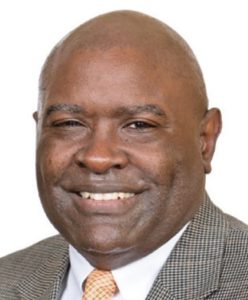
Leonard M. Dow began his role as stewardship and development specialist with Everence in April 2017. He helps Christian individuals and communities in urban areas to strengthen, sustain and build their financial capacity. Previously he served as pastor of Oxford Circle Mennonite Church in Philadelphia for almost 20 years. During his tenure, the congregation founded the Oxford Circle Christian Community Development Association, which launched many programs, including arts for youths, an annual community and food festival, ESL/GED adult classes, daycare center, financial and health classes, legal services, a family resource center and a farmers market. Leonard studied and Eastern Mennonite University and Palmer Theological Seminary. He loves the Lord and is married to Dr. Rosalie Rolon-Dow. They have three children: Carmela, Marcela and Lorenzo.
We live in a culture that places a high value on being busy and in a hurry. This idol of which I speak seduces us into believing that anyone who is of value is busy and in a hurry.
We are in such a rush that many of us are constantly living in the future, hurrying for time to pass and hurrying to move on to the next thing. As a result, increasingly we busy ourselves so much that we are just as exhausted even after we have had a night’s rest. On social media, I’ve recently noticed that the countdown to the weekend now begins on Monday! Why are we in such a rush to get through the week? In his book Addicted to Hurry: Spiritual Strategies for Slowing Down, Kirk Byron Jones contends that “the need for speed” is now accepted as normative in American life. People are so anxious to get on with whatever they have to do that they have no time for building relationships and community. As a result, many of us find ourselves already feeling exhausted before the upcoming extended Thanksgiving weekend.
This is reason for concern, says Jones: “When hurry becomes a chronic condition, when we run even when there is no reason to, when we rush while performing even the most mundane tasks, it may be said that we have become addicted to hurry.” Author John Orthberg in his book The Life You Always Wanted: Spiritual Disciplines for Ordinary People warns us that there are far more dangers because of “hurry sickness:”
“The most serious sign of ‘hurry sickness’ is a diminished capacity to love. Love and hurry are incompatible. Love ALWAYS takes time, and time is the one thing that hurried people do not have … hurried people cannot love.”
And if we have a diminished capacity to love, we will also have a diminished spirit of generosity and thanksgiving to others and ultimately to God.
For a moment, let us consider how our Lord Jesus lived his life.
Yes, Jesus’ life was full as he healed, preached, performed miracles, prayed, loved, expressed thanksgiving, was generous and routinely partied with sinners — nevertheless he was NOT in a hurry! In fact, Jesus wasn’t even in a hurry to start his ministry here on earth. Rather, he patiently waited 30 years to begin his ministry. And when Jesus finally was called, baptized and affirmed by God into his earthly ministry the very first act of his ministry was the unhurried act of going away for 40 days by himself to wrestle with the Evil One. During his ministry when his disciples sought to get rid of the children that were following Jesus and taking up his valuable time, Jesus was NOT in a hurry. Instead he said, “Let the little children come to me, and do not hinder them, for the kingdom of heaven belongs to such as these.”
Even when Jesus was notified that his good friend Lazarus was dying, the Bible tells us that Jesus didn’t drop everything and hurry to go to Bethany. Rather, he stayed an additional two days before leaving and arriving after Lazarus died. Perhaps Jesus recognized the signs of “hurry sickness” in the religious elite of his day. Noticing on the one hand they knew so much of the law yet they loved so little. And they loved so little because they were in such a hurry, so busy, so distracted, so angry, joyless and void of a spirit of generosity and thanksgiving. But before we condemn them for their busyness, perhaps we should ask of ourselves the question: Are we much different today?
The way we become anxious unless we see the latest updates on our mobile devices, even as we are surrounded by friends and family this Thanksgiving is a symptom we are our suffering from hurry sickness.
And we simply ignore the words of Jesus to every now and then “Consider how the lilies/wild flowers grow …” in Matthew 6:28. This is a symptom that we are suffering from some level of hurry sickness.
When we are addicted to “hurrying” we have no time to “consider the lilies,” no time to be thankful and consider our relationships with family, church community, friends, neighbors, God and God’s good creation. I don’t know about you but I don’t want to miss out on who/where/whatever God desires for me, for the church and for this world.
This Thanksgiving season I want to invite you to resist our culture that desires us to worship being in a hurry (Black Friday Shopping) and instead submit to God (James 4:7) knowing the one we worship is an unhurried Savior who lived an unhurried life — the question becomes whom will you follow?
_______________
Challenge from Leonard: This year at the Thanksgiving dinner table try having everyone put all phones/watches in the center of the table until after dinner and/or take a family walk outside together.
And of course send us a picture and a few words of the impact of celebrating an unhurried Thanksgiving together with family, friends and/or neighbors! Leonard.Dow@Everence.com

